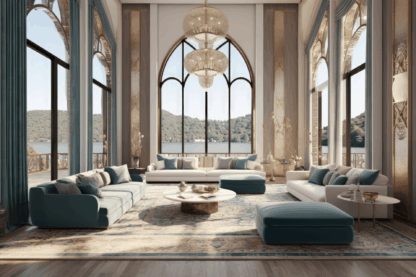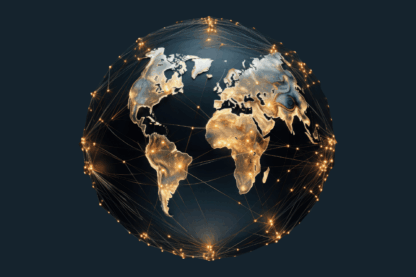After years of exceptional growth, the luxury sector finds itself at a defining moment. KPMG’s “Luxury in the Midst of Change 2025” investigates how the industry’s leading players are steering through turbulence to secure long-term relevance. Supported by interviews and data from 180 professionals across major markets, the report uncovers the strategies shaping luxury’s next chapter, one where creativity, technology, and responsibility must coexist to sustain desire and value in a changing world.
Market Slowdown and Polarization
For the first time since the pandemic, global luxury sales contracted in 2024, revealing the fragility of a sector that had appeared insulated from macroeconomic turbulence. While ultra-luxury products, particularly watches and fine jewelry, continue to perform well, most categories are now confronting slower growth due to reduced consumer confidence in key Asian markets and shifts in global spending patterns.
- Prices of leading luxury brands have risen 54% since 2019, a move that drove short-term profitability but eroded purchasing enthusiasm among a broader clientele.
- Very Important Customers (VICs), who represent fewer than 2% of consumers, now account for almost 40% of total sales, illustrating the growing polarization between the ultra-luxury and accessible segments.
- 53% of professionals surveyed consider personalized client experiences their top strategic focus, signaling a shift toward deeper engagement rather than mere product expansion.
Short-Term Adjustments
As brands adapt to tighter conditions, the report highlights a decisive movement toward operational efficiency and smarter use of technology. Cost optimization is no longer synonymous with austerity but with strategic precision: refining processes, supply chains, and communications without diluting the perceived value of products.
Artificial intelligence has emerged as a major catalyst. Nearly three-quarters of professionals surveyed view AI’s impact on customer engagement positively. Its applications extend from advanced data analytics to predictive logistics, allowing Maisons to anticipate demand, tailor marketing content, and personalize interactions. Chanel’s AI-driven campaigns, for instance, achieved double-digit gains in online engagement, demonstrating how innovation can enhance desirability while maintaining exclusivity.
Digital transformation also extends to creative and production processes. In sectors such as watchmaking and couture, AI now assists in generating prototypes, optimizing design cycles, and improving material efficiency, all without undermining human artistry
Long Term Shifts
Beyond immediate pressures, KPMG’s study identifies a structural transition within the luxury landscape. The world’s leading groups (LVMH, Kering, Richemont, and L’Oréal) are changing the perimeter of luxury by expanding into hospitality, wellness, and beauty. These categories, once considered peripheral, now serve as gateways to a more immersive brand experience and represent powerful channels for long-term client engagement.
Mergers and acquisitions remain a critical lever for growth and strategic renewal. Fifty-nine percent of executives cite access to new clients as the primary motivation behind acquisitions, followed by technology integration and product diversification. Notable moves include L’Oréal’s partnerships in high-end skincare and LVMH’s growing footprint in hotel and wellness ventures. Such strategies demonstrate how luxury Maisons are evolving from product-driven enterprises into holistic lifestyle ecosystems.
Equally important is the renewed focus on heritage. After a decade of rapid digital experimentation, many Maisons are returning to their origins, reinvesting in signature products and artisanal know-how. This return to authenticity, coupled with selective innovation, strengthens identity and ensures longevity. The challenge lies in balancing modern relevance with historical depth, a principle increasingly vital to the sector’s credibility.

Sustainability & the Second Hand Market
Sustainability is emerging not merely as a moral imperative but as a defining business driver. Consumers, especially younger generations, are now making purchasing decisions informed by ethical and environmental awareness. KPMG’s findings reveal that the integration of sustainability principles can enhance brand value and operational resilience simultaneously.
The circular economy is gaining traction as an extension of this shift. The global market for pre-owned luxury goods reached approximately €48 billion in 2023, expanding by seven percent year-on-year. While only a minority of brands have fully integrated second-hand channels into their operations, over half are exploring strategies to participate, either through certified resale platforms or take-back programs that reinforce authenticity and traceability.
Sustainability also extends to supply chains, materials, and logistics. Innovations such as low-carbon maritime transport and the use of recycled or traceable materials underscore the dual benefits of environmental responsibility and long-term profitability. Increasingly, these initiatives are viewed not as constraints but as opportunities to future-proof the industry against both regulatory and reputational risks.
Strategic Conclusions
The analysis underscores that luxury stands at a crossroads between continuity and reinvention. The sector’s next chapter will depend on balancing exclusivity with inclusivity, technology with tradition, and profitability with purpose. For luxury Maisons, resilience will not lie in resisting change but in mastering it, preserving heritage while adapting to a world where meaning, experience, and authenticity drive lasting value.
WLCC Perspective: As sustainability evolves from statement to standard, luxury brands must align purpose with performance, proving that responsibility can elevate, rather than constrain, creative excellence. Also, brands must learn how to balance innovation with heritage: Leverage AI and tech in design and operations while preserving artisanal and cultural authenticity.
Learn more about KPMG’s 2025 report: https://kpmg.com/sg/en/campaigns/luxury-in-the-midst-of-change.html
Stay up to date on the latest luxury industry news: https://worldluxurychamber.com/insights-news/





